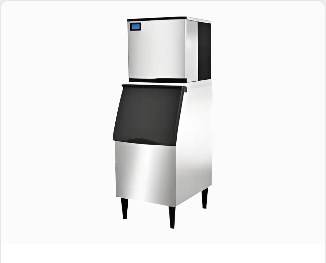- Home
- Product
- Island Freezer Series
- Commercail Kitchen Freezer Series
- Back Bar Cooler Series
- Chest Freezer Series
- Deli Cabinet
- Standard Copper Tube Refrigerator
- Non-Magnetic Refrigerator
- Air-Cooled Duck Cabinet
- Ice Maker
- SS Vertical Glass Showcase
- Combo Cabinet
- Refrigerated Display Cases
- Back Bar Coolers
- Beverage Display Coolers
- Undercounters
- Reach-Ins
- About Us
- Solution
- Service
- News
- Contact Us
Web Menu
- Home
- Product
- Island Freezer Series
- Commercail Kitchen Freezer Series
- Back Bar Cooler Series
- Chest Freezer Series
- Deli Cabinet
- Standard Copper Tube Refrigerator
- Non-Magnetic Refrigerator
- Air-Cooled Duck Cabinet
- Ice Maker
- SS Vertical Glass Showcase
- Combo Cabinet
- Refrigerated Display Cases
- Back Bar Coolers
- Beverage Display Coolers
- Undercounters
- Reach-Ins
- About Us
- Solution
- Service
- News
- Contact Us
Product Search
Exit Menu
Ice Maker Machine: The Development and Application of Modern Ice-Making Equipment
 2025.10.22
2025.10.22
 Industry News
Industry News
With the rapid development of the catering, hotel, medical, and commercial industries, the demand for ice-making equipment has continued to grow. As a key application of modern refrigeration technology, ice maker machines not only meet the demand for ice in various scenarios but also promote the continuous innovation and upgrading of refrigeration equipment technology.
Operating Principles and Core Technologies of Ice Makers
The core of ice maker machines lies in the efficient coordination of the refrigeration system and the water circulation system. Modern ice makers typically use compressor cooling, where the refrigerant absorbs heat in the evaporator, rapidly condensing water into ice. During the ice-making process, water quality and temperature control accuracy play a decisive role in the clarity and hardness of the ice. High-end equipment is often equipped with intelligent temperature control systems and water quality treatment devices to ensure stable ice quality and hygienic safety.
In ice maker design, the evaporator material, refrigerant type, and condensation method are key factors affecting performance. Copper or stainless steel evaporators offer higher thermal conductivity and shorten ice-making time. The use of environmentally friendly refrigerants not only complies with energy conservation and emission reduction policies but also enhances equipment sustainability. The condensation method, which combines air and water cooling, meets the efficiency and stability requirements of various environments.
Multi-scenario applications drive innovation in ice-making technology.
With the diversification of market demand, the application scenarios of ice maker machines are continuously expanding. In the catering industry, ice cubes are not only used to cool beverages but also serve to preserve food, provide display, and enhance aesthetics. In the medical and laboratory fields, temperature control accuracy and sterility are key design criteria for ice cubes. In commercial supermarkets and convenience stores, efficient, continuous-production ice makers ensure a stable supply chain and improve operational efficiency.

Different scenarios place varying demands on ice makers, driving continuous innovation among equipment manufacturers. For example, high-speed ice makers can produce large quantities of ice cubes in a short period of time to meet peak supply demands. Intelligent ice-making equipment enables remote monitoring, automatic alarms, and energy consumption management, improving management efficiency and user convenience.
Intelligence and Energy Saving Trends
Modern ice maker machines are clearly trending towards intelligence and energy conservation. Intelligent ice-making equipment leverages IoT technology to enable real-time monitoring of equipment status, fault prediction, and remote control, reducing maintenance costs and improving operational safety. Furthermore, energy-saving design plays a crucial role in compressor selection, fan speed regulation, and heat exchange optimization, resulting in lower energy consumption and higher efficiency in ice making.
Green environmental protection is also reflected in ice maker design. The use of low-energy refrigeration systems, environmentally friendly refrigerants, and water recycling technologies has significantly reduced energy consumption and emissions, meeting the sustainable development requirements of various commercial and public spaces.
Equipment Maintenance and Lifespan Assurance
The long-term, stable operation of an ice maker depends on proper maintenance and proper use. Regular cleaning of the water tank and ice-making channel to prevent scale and bacterial accumulation is crucial for ensuring ice hygiene. Regular maintenance of the evaporator and compressor helps maintain refrigeration efficiency and extend equipment life. Furthermore, proper operating procedures and ambient temperature management can reduce equipment failure rates and improve production efficiency.
High-end ice machines often feature intelligent reminders that prompt users to perform maintenance when equipment anomalies occur, preventing minor issues from disrupting production. These intelligent features not only enhance equipment reliability but also strengthen user experience and confidence.
Ice maker machines are not only a typical application of modern refrigeration technology, but also play a vital role in the catering, healthcare, commercial, and industrial sectors. Through technological innovation, intelligent upgrades, and energy-saving optimization, modern ice-making equipment is evolving towards high efficiency, environmental friendliness, and intelligence. In the future, as market demand continues to grow, ice makers will not only be an auxiliary tool in daily life but also a vital support for improving industry efficiency and optimizing operations.
News categories
Product categories
Exhibition Information
-
How do Refrigerated Displayer enhance a business's sales and customer experience?
Jan 22,2026 -
How Counter Chillers Work: Why are they the first choice for commercial cold chain equipment?
Jan 15,2026 -
How can Cooler Showcases enhance product display and increase customer purchase intent?
Jan 08,2026 -
How Does Catering Refrigeration Equipment Help Improve Service Quality in the Foodservice Industry?
Jan 01,2026
Related News
![]() +86-153 0659 4509
+86-153 0659 4509
![]() +86-(0)573-8796 5558
+86-(0)573-8796 5558
![]() zjxingbao@gmail.com
zjxingbao@gmail.com
![]() No. 10 Baisha Road, Lianhang Development Zone, Chang'an Town, Haining City, Zhejiang China 314423
No. 10 Baisha Road, Lianhang Development Zone, Chang'an Town, Haining City, Zhejiang China 314423
Mobile QR Code
Copyright © Zhejiang Xingbao Electrical Appliance Co., Ltd. All Rights Reserved. Custom Commercial Refrigerator Factory

 English
English 中文简体
中文简体 Español
Español عربى
عربى




